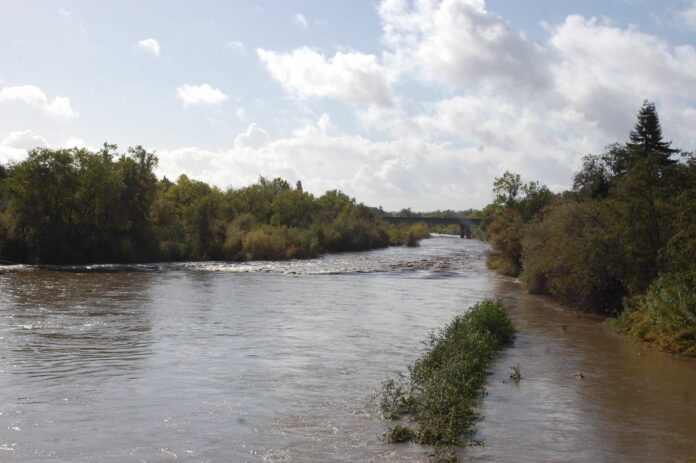The City of Healdsburg will be receiving an over $7 million California Department of Water Resources grant to add 4.5 miles to its municipal recycled water distribution network and expand recycled water deliveries, a big win for the city when it comes to building drought resilience amid another year of dry conditions.
Healdsburg City Manager Jeff Kay announced news of the grant at this week’s city council meeting on March 21.
“We heard back from the state that we’ve secured $7.1 million to support that project. We’re not going to declare victory just yet, but it is huge. It’s obviously a lot of money and it is a huge chunk out of the cost of that project,” Kay said.
A municipal recycled water pipeline — often called ‘purple pipe’ because of the lilac-colored pipes used — has been something that both residents and the city have been advocating for. The pipeline would provide recycled water to some city parks, the golf course, the cemetery and some public school athletic fields.
According to city officials, the cost is expected to fall between $10 and $15 million. Federal grant matches range from 25% to 30%. City staff submitted additional Federal Emergency Management Agency (FEMA) grant applications in February and is waiting to hear back.
“We continue to be aggressive with FEMA. My hope is that we’ll secure the balance of the funds through that source. Every time we get a dollar for this project we get a little more competitive for other dollars,” Kay said.
Kay thanked the Healdsburg Utility Department and utility director Terry Crowley for working on the state water resources grant applications, “This is a big deal and a great success.”
He said when they do get all of the necessary funds, it will be a complicated project and will take time — it won’t be ready for this summer’s drought.
In terms of other drought resiliency projects, the city is working on implementing aquifer storage and recovery wells (ASR). The wells are expected to produce 300 gallons per minute or 60 million gallons each summer, according to Kay.
The expected cost to complete three ASR wells is $8.5 million. Federal grant matches range from 25% to 50% and state grant matches can be up to 25%.
In looking at project progress to date, the city has completed preliminary well studies and found favorable conditions. If the city receives grant approval the next step would be to construct exploratory wells.
The city submitted a grant application with FEMA to fund a portion of the project with a 30% match and the grant acceptance is pending. A state department of water resources grant was also submitted.
According to Kay’s report, the grant has been accepted and is currently under technical review.
City drought update
As of the March 21 update from Kay, Lake Mendocino at a storage level of 43,516 acre-feet, roughly up 1,000 acre-feet since the last city council drought report. Citywide conservation is roughly at 21% compared to 2020.
Kay said they expect this summer’s conservation needs to range between 20% and 30% and some outdoor irrigation will be allowed, “albeit with limits and only on certain days, but we do think it is important for people to understand that hopefully we’re not quite in the situation we were last year with a complete prohibition on outdoor irrigation. We know that is concerning for people. We still want them to be very vigilant and help us with conservation.”
Last summer the city was targeting a 40% reduction in water use for both residents and commercial.
The water rights curtailment suspension continues until April 1, however, it’s likely that curtailments will resume after or around April 1 if dry conditions persist. Earlier this week, the state water resources control board mailed out early warning letters regarding curtailments to nearly 20,000 water right holders.
The letter highlights the critical conditions that the state is facing and urges right holders to plan ahead for potential water shortages by reducing water use. The letter also tells right holders to prepare for curtailments if certain watershed conditions continue.
“Last year, extreme drought conditions led to unprecedented actions by the state water board that included curtailment of water rights in many California watersheds. The Division of Water Rights is preparing similar actions for 2022, and we plan to ask the state water board to consider emergency regulations to curtail water rights in certain watersheds if dry conditions continue or worsen. If you are in the Bay-Delta, Russian River, Scott River, Shasta River, Mill Creek, or Deer Creek watersheds, you should prepare for earlier curtailments,” the letter states.









